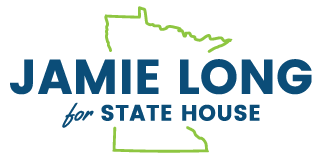Local legislators pessimistic on health care
By Nate Gotlieb from Southwest Journal
Health care would become more expensive for vulnerable populations and cover less if a U.S. Senate Republican bill becomes law, speakers said at a town hall meeting June 30.
The bill would reduce subsidies for people who have lower incomes, allow states to lessen coverage requirements and cap public-care costs at a rate that doesn’t match inflation, said Jamie Long deputy chief of staff for U.S. Rep. Keith Ellison. It would result in a 35-percent cut in payments to the federal program that covers millions of low-income adults, children, pregnant women, elderly adults and people with disabilities, called Medicaid.
Further, the bill would phase out the expansion of Medicaid enacted under President Obama’s Affordable Care Act and repeal the taxes enacted to pay for that expansion. Those include taxes on investment income for wealthy Americans, tanning salons and the health insurance and medical device industries.
DFL state Sen. Tony Lourey
“It’s Robin Hood in reverse,” said DFL state Sen. Tony Lourey, of Kerrick. “We’ve got a team that’s working for the Sheriff of Nottingham, and they’re stealing from the poor and giving to the rich.”
The town hall was hosted by state Sen. Scott Dibble and reps. Frank Hornstein and Paul Thissen at the Bakken Museum. It came about a week after U.S. Senate Republicans unveiled their health care bill, which was subsequently opposed by all Senate Democrats, leading medical groups and multiple Republicans.
The bill doesn’t appear to have the votes necessary to pass, so Republicans plan on introducing a revised bill next week. U.S. House Republicans passed their version of a health care bill in May.
The nonpartisan Congressional Budget Office predicted the Senate bill would increase the number of people without health insurance by 22 million by 2026. The House bill would increase the number of uninsured people by 23 million by 2026.
Speakers at the June 30 town hall criticized both bills, expressing dismay about the coverage they would provide to vulnerable Americans. They uniformly expressed a belief that health care is a fundamental human right and advocated a system of universal care.
“There is just no possible way we can maintain and keep the promises we’ve made to elderly, children and families,” under the Republican bills, Lourey said.
“It’s not an ACA repeal,” he added. “It’s going back 45 years before the ACA and breaking a promise that we made to the people of the United States.”
Role of Medicaid
The speakers at the town hall told the crowd how Medicaid funding goes toward services such as cancer screening, birth control, sexually transmitted disease testing and preventative services for kids. They also explained the broad reach of the program.
Town hall panelists (from left to right): Tim Stanley, senior director of public affairs, Planned Parenthood of Minnesota, North Dakota and South Dakota; Rose Roach, executive director, Minnesota Nurses Association; Amira Adawe, legislative liaison, Minnesota Department of Health; Dr. Lindsey Yock, pediatric hospitalist and adjunct attorney, Children’s Hospitals and Clinics of Minnesota; DFL state Sen. John Marty, of St. Paul
More than one-third of Planned Parenthood’s patients in Minnesota, North Dakota and South Dakota depend on Medicaid for their services, according to Tim Stanley, senior director of public affairs for the region. Similarly, over one-third of all kids in the U.S. are enrolled in Medicaid, according to Dr. Lindsey Yock of Children’s Hospitals and Clinics of Minnesota. The program covers everything from preventative services to lifesaving therapies, she said.
Lourey also painted a gloomy picture for the outlook of health care in Minnesota. He noted how about $460 million in cuts to Minnesota’s Health and Human Services budget could hurt the elderly, the disabled, children and families, adding that the state’s HHS department will be relying on $1.1 billion in one-time money for ongoing needs.
The U.S. Senate bill would reduce federal receipts in support of health care to Minnesotans by about $2 billion over the first 18 months, Lourey said. He predicted the cuts would fall more on rural communities, which are much more reliant on public payers than the Twin Cities metro.
Advocating universal health care
Rose Roach, executive director of the Minnesota Nurses Association, said society must view health care as a fundamental human right, adding that her association supports bills in Minnesota to create a tax-funded health care system that would cover everyone.
DFL state Sen. John Marty, of St. Paul, echoed that belief, noting his billto establish a universal health care system in Minnesota. His system would cover everyone for everything, with no exceptions, he said.
“When you cover everyone, and do it in efficient way, it’s actually cheaper,” he said, noting that Minnesota spent $51 billion on health care in 2016.
Thissen predicted the cuts in Minnesota will cause problems for vulnerable populations, adding that “we’re going to see worse times before we see better.”
One attendee asked the panelists what people can do to prevent the bill’s passage. Long suggested reaching out to friends in states with Republican senators. He also suggested having friends in Minnesota’s 2nd, 3rd and 6th congressional districts call their representatives, all of whom are Republicans.
Despite the pessimistic outlook, the lawmakers predicted things would eventually get better. Marty said he thinks the GOP health care bill is actually multiplying the chances that universal health care could pass, “because we’re running out of options.”
“Trumpcare is exactly the opposite of what he promised people,” Marty said. “There is no good response. They’ll use alternative facts and try and blame others.”
Lourey also said the bill’s passing could eventually lead to positive change.
“It’s going to ripple through the entirety of our economy,” he said, “but once it’s starts to be felt, we’re going to energize and going to take that next step and actually have a better framework than the ACA.”



